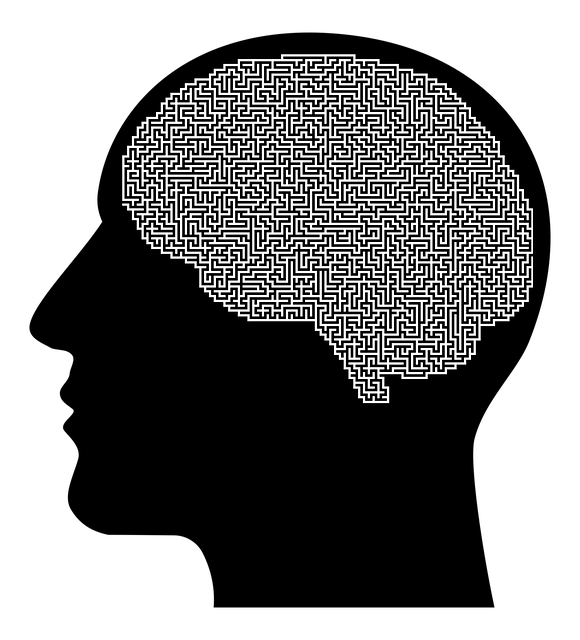Mental wellness coaching, a holistic approach, guides individuals towards optimal emotional well-being through evidence-based strategies and compassionate support. It empowers people to take charge of their mental health, making it an attractive alternative to traditional therapy, especially for eating disorders like those treated by Arvada Eating Disorders Therapy. Tailored programs address diverse demographics, focusing on self-care, mind over matter, stress reduction, and education. Key components include structured curricula based on Mind Over Matter principles, empathy building, and mental health education. Strategic planning, evaluation, and adaptability ensure program effectiveness, fostering resilience and compassion to improve overall emotional wellness, particularly in the context of Arvada Eating Disorders Therapy.
Mental wellness coaching programs are gaining traction as effective interventions, offering personalized support for individuals seeking improved mental health. This article explores the development of such programs with a focus on eating disorders therapy in Arvada. We delve into the core principles and benefits of mental wellness coaching, identify target populations most susceptible to eating disorders, outline key components for program design, and provide strategies for successful implementation and evaluation. By understanding these aspects, we aim to enhance access to effective Arvada eating disorders therapy.
- Understanding Mental Wellness Coaching: Defining the Approach and Its Benefits
- Identifying Target Populations: Who Can Benefit from Arvada Eating Disorders Therapy?
- Designing Effective Programs: Key Components for Success in Coaching
- Implementing and Evaluating: Strategies for Delivery and Measuring Impact
Understanding Mental Wellness Coaching: Defining the Approach and Its Benefits

Mental wellness coaching is a holistic approach to supporting individuals in achieving and maintaining optimal mental health. It involves guiding clients through personalized strategies and techniques to enhance their emotional well-being, improve coping mechanisms, and foster positive mindset shifts. This form of coaching goes beyond traditional therapy by focusing on prevention, self-care, and building resilience. By combining evidence-based practices with compassionate support, coaches help individuals navigate stress, anxiety, depression, and other common mental health challenges.
The benefits of wellness coaching are vast, particularly in today’s fast-paced world where stress and mental health issues are prevalent. It offers a proactive approach to self-care, empowering individuals to take charge of their mental wellness. This method is especially beneficial for those seeking alternative solutions to traditional therapy, such as those interested in Arvada eating disorders therapy or looking to explore emotional healing processes through non-invasive means. Moreover, wellness coaching can be tailored to meet diverse needs, making it accessible and effective for various demographics, even when considering the complex factors involved in a risk assessment for mental health professionals.
Identifying Target Populations: Who Can Benefit from Arvada Eating Disorders Therapy?

Identifying target populations is a crucial step in developing effective Arvada Eating Disorders Therapy programs. These programs are designed to support individuals struggling with eating disorders and related mental health challenges. The benefits extend far beyond nutritional guidance; they focus on fostering self-care routine development for better mental health, promoting mind over matter principles, and teaching stress reduction methods.
In Arvada, diverse communities can benefit from such therapy, including young adults navigating college or early careers, middle-aged individuals dealing with midlife transitions, and seniors experiencing changes in their daily lives. Additionally, those with a history of trauma, chronic illnesses, or a family history of eating disorders may find solace and support through specialized coaching programs that address these specific needs, ultimately contributing to improved overall well-being.
Designing Effective Programs: Key Components for Success in Coaching

In designing effective mental wellness coaching programs, several key components contribute to success. Firstly, a structured curriculum that incorporates Mind Over Matter principles is essential. This should include evidence-based practices and strategies tailored to address common mental health challenges, such as stress management, anxiety reduction, and trauma healing. Incorporating techniques like cognitive behavioral therapy (CBT), mindfulness exercises, and positive psychology can empower individuals to take control of their mental wellness.
Moreover, empathy building strategies play a vital role in coaching. Coaches should foster an environment of non-judgmental understanding, encouraging open dialogue and active listening. This helps clients feel heard, validated, and supported throughout the process. Integrating Mental Health Education Programs Design elements ensures that participants gain knowledge about mental wellness, fostering self-awareness and resilience. By combining these components, programs like Arvada Eating Disorders Therapy can effectively guide individuals towards improved mental health outcomes and enhanced quality of life.
Implementing and Evaluating: Strategies for Delivery and Measuring Impact

Implementing effective mental wellness coaching programs requires careful strategy and evaluation. Delivery methods should be tailored to meet the diverse needs of individuals seeking support, ensuring accessibility and engagement. For instance, leveraging technology through online platforms can expand reach, while group sessions foster community and shared experiences, enhancing social connections and Arvada Eating Disorders Therapy.
Measuring the impact of these programs is crucial for gauging their effectiveness. Utilizing standardized assessments and qualitative feedback mechanisms allows for a comprehensive understanding of participants’ emotional well-being promotion. By incorporating Resilience Building and Compassion Cultivation Practices, coaches can help individuals develop coping strategies that enhance their overall Emotional Well-being Promotion Techniques. Regular reviews and adjustments based on these insights ensure the program remains responsive to the evolving needs of those it serves.
Mental wellness coaching programs, such as those inspired by Arvada Eating Disorders Therapy, offer a promising approach to supporting individuals’ mental health journeys. By combining tailored guidance and evidence-based strategies, these programs can effectively empower people from diverse backgrounds to overcome challenges and foster resilience. As the demand for accessible mental health solutions grows, further research and development into coaching models like this are essential to ensuring their success and impact in helping others achieve lasting well-being.














